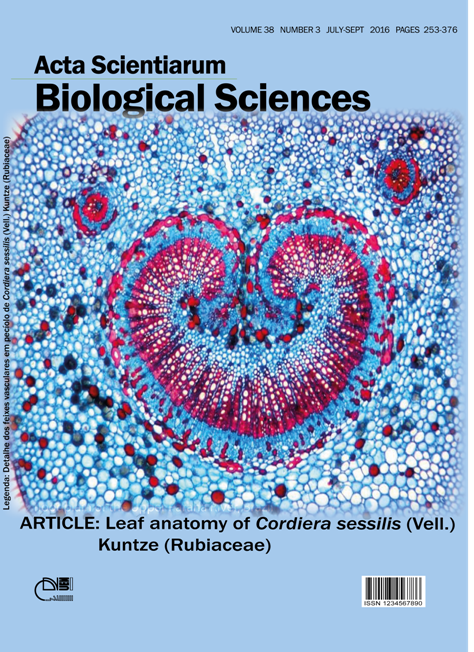<b>Fish welfare: the state of science by scientometrical analysis
Resumo
In 2014, Brazil produced 474.33 thousand tons of captive-bred fish. In addition, regulatory agencies of animal ethics and welfare have recently encouraged experiments to be done using simpler vertebrates, such as fish. The aim of this article was to perform a scientometric analysis of scientific production that deals with fish welfare, in an attempt to find trends and gaps in this line of research. Our analyses showed a growing concern about fish welfare, although several questions remained inadequately covered. The most studied species was the Atlantic salmon, with Norway having the most publications on this theme. There are controversies among scientists about fish capacity for suffering and enjoyment (sentience). As regards slaughter or euthanasia, some studies showed that some methods are more endorsed than others, because they effectively reduce suffering and improve the appearance of the meat. In respect of animals used for experimentation, the most recommended substances were benzocaine and MS222. Thus, despite the importance of this subject, few studies are decisive and there is still no consensus on how to improve fish welfare or even on how to reduce suffering at the moment of slaughter.
Downloads
DECLARAÇÃO DE ORIGINALIDADE E DIREITOS AUTORAIS
Declaro que o presente artigo é original, não tendo sido submetido à publicação em qualquer outro periódico nacional ou internacional, quer seja em parte ou em sua totalidade.
Os direitos autorais pertencem exclusivamente aos autores. Os direitos de licenciamento utilizados pelo periódico é a licença Creative Commons Attribution 4.0 (CC BY 4.0): são permitidos o compartilhamento (cópia e distribuição do material em qualqer meio ou formato) e adaptação (remix, transformação e criação de material a partir do conteúdo assim licenciado para quaisquer fins, inclusive comerciais.
Recomenda-se a leitura desse link para maiores informações sobre o tema: fornecimento de créditos e referências de forma correta, entre outros detalhes cruciais para uso adequado do material licenciado.













1.png)




3.png)













